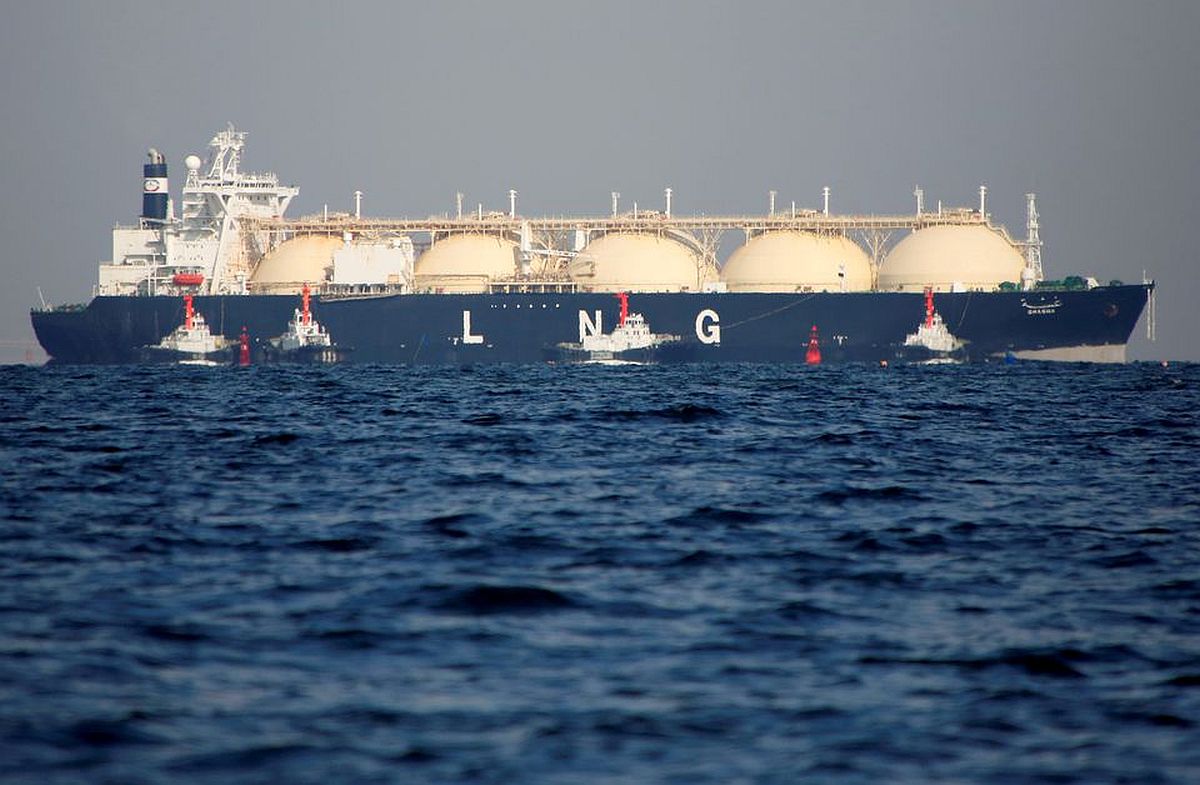'Any escalation that may hit the oil production of Iran or affect the oil transit through the Strait can result in a spike in oil prices.'

India's dependency on volatile foreign oil and natural gas markets will be further tested after Iran fired scores of missiles and drones on Israeli territory last week and captured an Israel-owned tanker, helmed by Indian sailors, in the latest flare-up of tensions in West Asia.
At stake for India are both the supplies and prices of crude oil. India imports around 4.7 million barrels per day (bpd) of crude, equivalent to 88 per cent of its needs, and meets 45 per cent of its natural gas demand via imported liquefied natural gas.
Most of those supplies are shipped to India via two chokepoints -- the Strait of Hormuz and the Red Sea -- because India, unlike China and the US, lacks transnational pipelines to import oil and gas.
The Red Sea shipping route via the Suez Canal has been under stress since January after attacks by Yemen-based Houthi rebels in retaliation for the Israeli invasion of Gaza.
Now, the Strait of Hormuz -- the world's most crucial oil chokepoint which connects the Persian Gulf with the Gulf of Oman and the Arabian Sea -- is in the cross hairs of an expanding conflict in West Asia.
Iran produces 3.2 million bpd of crude oil and has significant control over the Strait of Hormuz, which accounts for 30 per cent of oil transit and 70 per cent of oil shipment to Asia, said Swarnendu Bhushan, co-head of research at Mumbai-based brokerage Prabhudas Lilladher.
"Any escalation that may hit the oil production of Iran or affect the oil transit through the Strait can result in a spike in oil prices."
Crude oil surged to over $90 per barrel in April and may cross $100 per barrel, analysts say, amid a potential escalation of tensions in West Asia -- April levels are at the highest since September.
Russia, India's biggest oil source, supplied 34 per cent of India's imported oil in 2024 until April 14, on tankers that cross the Suez, an existing flashpoint -- the Red Sea is also a key transit point for India's product exports led by diesel, which crashed in January because of the Houthi attacks.
Another 46 per cent of India's overseas crude supplies came from Gulf nations via the Strait of Hormuz, ship-tracking data from Paris-based Kpler shows.
There are concerns over the safety of tankers after Iran seized a container ship, MSC Aries, on April 13 near the Strait of Hormuz by carrying out a heliborne operation.
Flows through the Strait of Hormuz make up more than one-quarter of total global seaborne traded oil and around one-fifth of global LNG trade, according to the US Energy Information Administration.
Of greater import is the excess dependence of Asia on supplies via the Strait.
'We estimate that 82 per cent of the crude oil and condensate that moved through the Strait of Hormuz went to Asian markets in 2022 -- China, India, Japan, and South Korea were the top destinations, accounting for 67 per cent of all Hormuz crude oil and condensate flows in 2022 and the first half of 2023,' said Candace Dunn and Justine Barden in a US EIA report.
India's strategic reserves will last only a few days, with oil inventories at refiners keeping Indian retail outlets supplied somewhat longer.
"The Iran-Israel tensions are keeping crude higher so that impacts Indian refiners in the form of higher input costs," said Vandana Hari, Singapore-based energy expert and founder of Vanda Insights.
"This would affect oil-marketing companies negatively as they may not be able to take commensurate price hikes," Bhushan said.
At $90 per barrel, Indian refiners will face huge losses in fuel sales because current pump prices of petrol and diesel are closer to crude trading at $80 per barrel, another Mumbai-based senior analyst said.
Losses on diesel will further expand, and they will start losing money on gasoline and liquefied petroleum gas, he said. State refiners are in no position to increase rates until a new government is in place in June, so they are staring at a quarter of losses if crude stays strong, he said.
Queering the pitch was India's decision in late 2023 to scrap filling India's strategic crude reserves to save a budgeted Rs 5,000 crore (Rs 50 billion) in FY24, a move that will haunt the government as officials expected oil to oscillate at $70 per barrel levels.
At $70 per barrel, India could have bought 8.6 million barrels of crude last year for $600 million, which will fetch 6.6 million barrels. India consumes over 5 million bpd of fuel.
"Markets are very anxious, but it is a bit early to say anything for sure," said Narendra Taneja, a Delhi-based energy expert. "Any escalation in West Asia is bad for prices from an importer's point of view." And that's bad news for India's economy.









